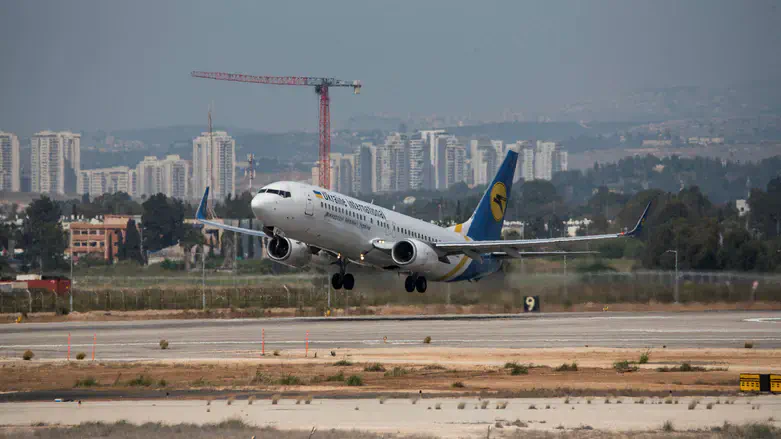
Israel's Transportation Minister Miri Regev (Likud) arrived Monday in Hungary and is holding meetings with the relevant ministers in an attempt to cancel the EASA's warning regarding Israeli airspace.
She will also meet the CEO of Wizz Air, in an effort to further advance changes to the European Union's decision.
Parallel to this, Transportation Ministry Director General Moshe Ben Zaken and Civil Aviation Authority chief Shmuel Zakai are holding talks with the EASA heads, and clarifying that there is no security risk in flying to Israel, and that the decision stemmed from unrelated considerations.
On Saturday, the European Union Aviation Safety Agency (EASA) issued recommendations to all airline operators not to operate within Israeli or Lebanese airspace, "at all flight levels."
In a statement, the EASA wrote, "Air operators should closely monitor airspace developments in the region and follow all available aeronautical publications concerning the region issued by Lebanon, or on behalf of Lebanon by the Aviation Authorities of the neighboring States, including information shared through the European Information Sharing and Cooperation Platform on Conflict Zones, alongside available guidance or direction from their national authorities."
An identical statement was written regarding Israel.
Both warnings were stated as valid until October 31, unless reviewed earlier, and apply to air operators "subject to the provisions of Commission Regulation (EU) 965/2012, planning to conduct operations in the affected airspace (EASA operators); and to third Country Operators authorized by EASA, when conducting operations under their TCO authorization to, from and within the EU (TCO operators)."
The warning, EASA stated, is due to belief that the "current conflict between Hezbollah and Israel, there is a high risk to civil aviation. The conflict involves rockets, missiles and drones launches from Lebanon with Israeli airstrikes and artillery fire, including systematic activation of air-defence systems."
"Hezbollah’s possession of all-altitude capable cruise and ballistic missiles, along with the deployment of air assets operating at various altitudes, increases the risk of misidentification and miscalculation.
"Additionally, cruise missiles and military-grade weaponized drones launched by Hezbollah allies create additional concerns for the safety of airspace in the region."
It stressed, "Although, until now the Civil Aviation Authority of the State of Israel has been efficiently managing the risks to civil aviation in its airspace through a tactical deconfliction, it is considered that the current intensity of the conflict represents an overall high risk to civil aviation."
"EASA will continue to closely monitor the situation, with a view to assess whether there is an increase or decrease of the risk for EU aircraft operators due to the evolution of the threat and risk situation."
Lebanon's warning noted that "in terms of airspace management, the State concerned has not demonstrated full capability to address existing airspace risks by implementing an efficient and proactive approach to the airspace deconfliction. As a result, there are limited mitigating factors, on which air operators can rely."
